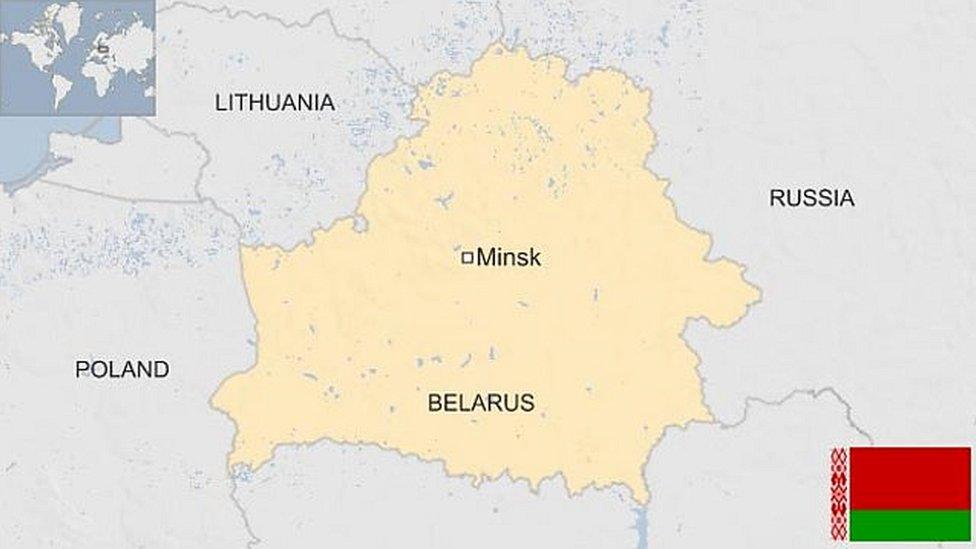Belarus election: Opposition shut out of parliament
- Published
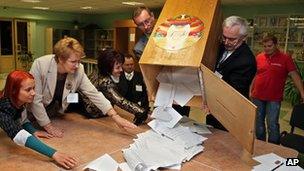
The opposition says the election results were decided in advance
Belarus has elected a parliament filled with supporters of President Alexander Lukashenko, after a boycott by the two main opposition parties.
Election officials said the minimum turnout of 50% was reached in all 110 constituencies. In 16 there was only one candidate, because of the boycott.
Western observers said the election was "not competitive from the start".
Mr Lukashenko has ruled the ex-Soviet republic since 1994, stifling dissent. He called the opposition "cowards".
The vote came two years after Mr Lukashenko won a landslide presidential election, which was denounced by Western observers. He has been described as Europe's last dictator.
Eleven political prisoners are currently in jail and Amnesty International says authorities also detained other opposition activists ahead of the election.
The two strongest opposition parties - United Civic and the BPF - pulled out of the race about a week ago.
Some marginal opposition parties - Just World and the Belarusian Social Democratic Party - took part, but were not elected.
Mr Lukashenko and senior aides have been banned from travelling to the EU since the violent suppression of opposition parties in 2010.
Election 'farce'
The Organisation for Security and Co-operation in Europe (OSCE) said its observers found Sunday's vote was "not administered in an impartial manner".
"A free election depends on people being free to speak, organise and run for office, and we didn't see that in this campaign," said the OSCE's Matteo Mecacci.
He said the electoral authorities showed a "lack of neutrality and impartiality", and there were "serious concerns" over counting procedures.
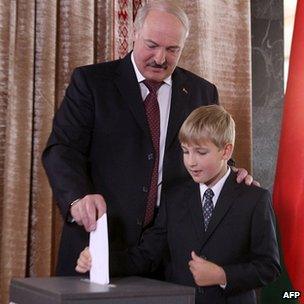
President Lukashenko, voting with his son Nikolai, warned against opposition protests
There was a contrasting assessment by the observer mission from the Commonwealth of Independent States, led by Belarus's ally, Russia.
The CIS chief observer, Sergey Lebedev, said the vote was "transparent and open".
President Lukashenko cast his vote at a polling station in Minsk - his seven-year-old-son Nikolai at his side - and warned the opposition against trying to stage protests.
"We don't need a revolution, or any sort of shocks," he said.
"We don't need brawls, explosions or fights."
The head of an unregistered opposition group, Mikhail Pashkevich of Tell the Truth, told the BBC that the election results had been determined in advance.
"There are no elections... in Belarus now, only something like a farce, a play that is named election but is not an election," he said.
Opposition leaders called on voters to do something else - go fishing, visit relatives, pick mushrooms or make soup - rather than vote.
"This is our reaction to the pseudo-elections for the fake parliament," said Anatoly Lebedko, leader of the United Civic Party.
Candidates jailed
Central Election Commission secretary Nikolai Lozovik said the opposition was a "Western creation" and was unpopular in Belarus.
"The opposition does not reflect the people's will," he told the BBC.
"Instead they are working in the interests of those Western forces that are sponsoring them."
Mr Lukashenko's 2010 election victory sparked violent confrontations in the capital Minsk between security forces and thousands of opposition activists who claimed the vote had been rigged.
In the crackdown that followed, scores of opposition activists were arrested and many people, including several candidates who stood against Mr Lukashenko, were jailed.
Belarus has not held an election considered free and fair by Western observers since Mr Lukashenko came to power in 1994.
- Published21 September 2012
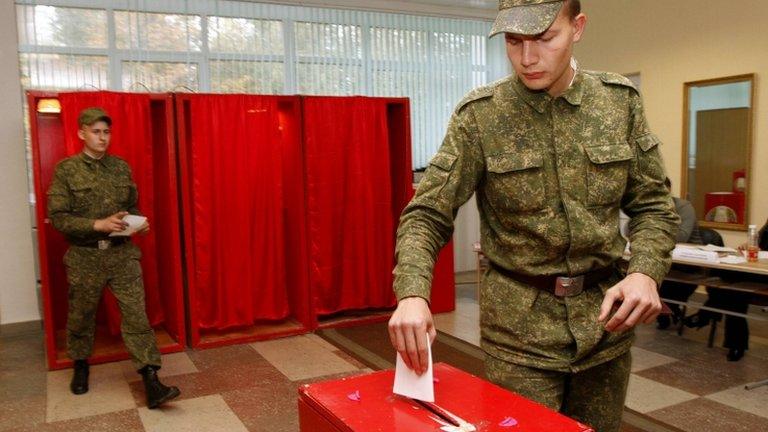
- Published20 August 2012
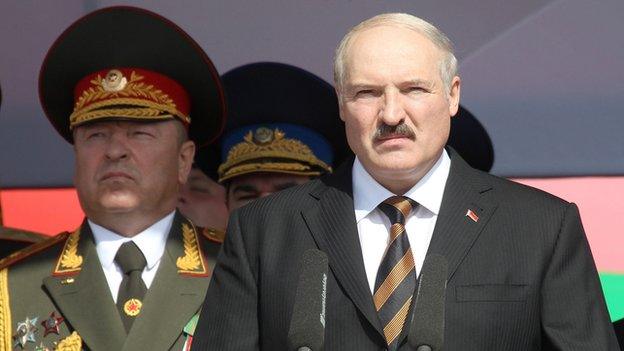
- Published27 January
